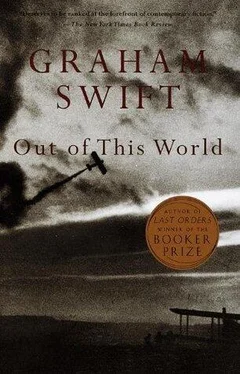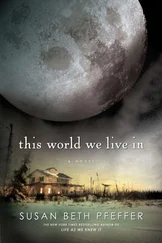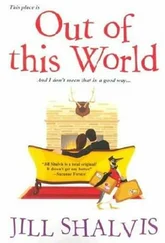Graham Swift - Out of This World
Здесь есть возможность читать онлайн «Graham Swift - Out of This World» весь текст электронной книги совершенно бесплатно (целиком полную версию без сокращений). В некоторых случаях можно слушать аудио, скачать через торрент в формате fb2 и присутствует краткое содержание. Год выпуска: 2012, Издательство: Vintage, Жанр: Современная проза, на английском языке. Описание произведения, (предисловие) а так же отзывы посетителей доступны на портале библиотеки ЛибКат.
- Название:Out of This World
- Автор:
- Издательство:Vintage
- Жанр:
- Год:2012
- ISBN:нет данных
- Рейтинг книги:3 / 5. Голосов: 1
-
Избранное:Добавить в избранное
- Отзывы:
-
Ваша оценка:
- 60
- 1
- 2
- 3
- 4
- 5
Out of This World: краткое содержание, описание и аннотация
Предлагаем к чтению аннотацию, описание, краткое содержание или предисловие (зависит от того, что написал сам автор книги «Out of This World»). Если вы не нашли необходимую информацию о книге — напишите в комментариях, мы постараемся отыскать её.
Out of This World — читать онлайн бесплатно полную книгу (весь текст) целиком
Ниже представлен текст книги, разбитый по страницам. Система сохранения места последней прочитанной страницы, позволяет с удобством читать онлайн бесплатно книгу «Out of This World», без необходимости каждый раз заново искать на чём Вы остановились. Поставьте закладку, и сможете в любой момент перейти на страницу, на которой закончили чтение.
Интервал:
Закладка:
Cut to Kyrenia, northern Cyprus, April ’64 (and hold on back projection). Interior scene after mortar attack. A teenage boy crouches by a lacerated victim, but at the moment of the photograph his head has swung imploringly round, without yet registering (the last thing he has expected) the camera. His face is a blurred scream for help.
‘But isn’t that — if you’ll forgive me — just how many people do respond to your photos. They think: What makes a man take a picture like this?’
There were always in those days those two kinds of reaction. Either I was this new type of hero, this okay type of hero, a hero without a gun, without a weapon, but flinching at nothing to bring back the truth. Or (the majority?) there was only one thought: What kind of freak, what kind of sicko stands in front of the maimed and dying and desperate, and calmly (calmly! Stands!) snaps their photograph? And what kind of warped mentality voluntarily sets out looking for such pictures in the first place?
A defence mechanism, of course. Whip the messenger because of the news.
And just look what happens in the spring of 1972 when that news that he has been pursuing for over fifteen years finally catches up with him ? He stands off-stage, like a gormless understudy. His shady mock-heroics pale before the real, the true — the ultimate — stuff of his father. And what’s more to the point, almost overnight, it seems, he abandons photography. Like some confession of guilt. Leaves the field and disappears from the world.
So, wasn’t that quits? No? Not only the subversive but the reneger too? So what did they want? That for the sake of integrity, I should have snapped my own father’s death?
People look for motives, reasons (as a last resort, try the Oedipus Complex), things to explain things away. Never mind the cause if the effect failed, never mind the effect if the cause can be discredited. A personal thing, you see. A psychological thing. He was a bit of a case. So we don’t have to take seriously those grim souvenirs he brought back from far-off places.
Just an observer! Just an eye behind a lens!
Have you heard the one about the white-coated scientist? (Or, say, impartial observer, or, say, photographer?) He came along once upon a time and said, Now, at last, I can show you how the world really is. Very impressive, very persuasive. Until someone said, Hold on just a second — the fact that you’re standing there looking at it is changing the way the world is anyway. If you’re going to tell us how things are, then maybe we should start with you.
Have you noticed how the world has changed? It’s become this vast display of evidence, this exhibition of recorded data, this continuously running movie.
The problem is what you don’t see. The problem is your field of vision. (A picture of the whole world!) The problem is selection (true, Mr Interviewer), the frame, the separation of the image from the thing. The extraction of the world from the world. The problem is where and how you draw the line. (Sometimes it’s simple: Hold those shots of the African refugees, we need the half-page for the airline ad.)
There is a picture of mine (one of the ‘famous photos’) of a marine throwing a grenade at Hoi An. His right arm is stretched back, his whole body flexed, beneath the helmet you can see the profile of a handsome face. It’s pure Greek statue, pure Hollywood, pure charisma. And it’s how it was. It must have been. Because the camera showed it. A second later, that marine took a round in the chest and I took two more shots and then some more as they got him clear. I wanted the whole sequence to be printed. But you can guess — you know — which single shot they took. This was ’65. And that picture got syndicated everywhere, and even got transferred, with or without my knowledge, but never with my consent, on to posters, book-jackets, propaganda hand-outs, even T-shirts, till no one remembered any more, if they had ever known, that this was a picture of a real man, who’d died seconds afterwards, or wondered who he was or what small town in the Mid-West he came from (it was Bloomington, Indiana), or ever considered — it was an image, it was there — that someone must have taken the original pic.
What is a photograph? It’s an object. It’s something defined, with an edge. You can pick it up, look at it, like a pebble from a beach, like a lump of rock chipped from the moon. You can put it here or there, in an album, on a mantelpiece, in a newspaper, in a book. A long time after the event it is still there, and when you look at it you shut out everything else. It becomes an icon, a totem, a curio. A photo is a piece of reality? A fragment of the truth?
I am sixty-four years old, and the picture looms before me, exquisitely framed, of building my life round a beautiful girl of twenty-three.
When I was nine or ten or so I used to make the journey several times a year between my home and my prep school, thirty miles away in Hampshire. I would be driven to Dorking station. The chauffeur in those days was called Beatty, and the car, believe it or not, was a Lanchester 21. The porter would take my bags and I would give him the coins that Dad had given me to give him, and he would touch his cap as if he were studiously playing the character of a porter. Then I would get a train, changing at Guildford, to Petersfield.
It never occurred to me that there must be sons of parents living in London who were dispatched to boarding schools in Surrey, near Dorking, or that a whole system of English education was based on the removal of the young to, at least, the next county.
I should have found the outward journeys, the back-to-school journeys, the more wretched. But I could never have said which was worse, going to school or going home, because I dreaded both places. The two dreads would sometimes cancel themselves out into a sort of numb suspension, so that I would say to myself: You belong nowhere. Or rather: This is the only place you belong — this transit region, this in-between space.
I would sit with my face to the window while the damp Surrey fields slid by, and think: All you are is your eyes, all there is is in your eyes, your vision is you. And there was a corollary to this which if I couldn’t formulate I could feel. If you exist in your vision, then nothing can hurt you, you need never be frightened of anything.
If you talk to news photographers who from time to time will put themselves in the most dangerous situations or amidst the most terrible scenes in order to get their pictures, they will describe a similar sensation. The camera seems to make them invisible, invulnerable, incorporeal. They are like those immortal gods and goddesses who flitted unharmed round the plain at Troy. This heady sense of immunity will even compel them, over and above their obligations as journalists, to keep on visiting these zones of danger. Hey, don’t shoot me, don’t blame me. I’m only here for the photograph.
This is, of course, an illusion. It didn’t stop Bill Cochrane, amongst others, from being killed with his camera in his hand. But it is a potent illusion, which exists even in the most amateur and innocuous forms of photography, and perhaps it is why the photo, the film, which once people existed entirely without, has become almost a necessity of life. A photo is a reprieve, an act of suspension, a charm. If you see something terrible or wonderful, that you can’t take in or focus your feelings for — a battlefield, the Taj Mahal, the woman with whom you think you are falling in love — take a picture of it, hold the camera to it. Look again when it’s safe. I have always loved flying.
Sophie
How are your classics, Doctor K? Have you brushed up on your Homer lately? It’s strange, I might never have been interested. All those books up there in the study. Fifty years old, the spines faded; but so many of them, inside, scarcely used, the relics of a career that never happened. And the plaster busts. Let me see if I can remember: Homer, Pericles, Virgil, Cicero. Two with beards and two without. And all with blind, white eyes. I might never have been interested, I might have thought of that room just as it always seemed, a place somehow you didn’t go , if it wasn’t that one day — don’t ask me how old I was, eleven, twelve — I had suddenly thought: Greek! Greece! Maybe it was a way back to her .
Читать дальшеИнтервал:
Закладка:
Похожие книги на «Out of This World»
Представляем Вашему вниманию похожие книги на «Out of This World» списком для выбора. Мы отобрали схожую по названию и смыслу литературу в надежде предоставить читателям больше вариантов отыскать новые, интересные, ещё непрочитанные произведения.
Обсуждение, отзывы о книге «Out of This World» и просто собственные мнения читателей. Оставьте ваши комментарии, напишите, что Вы думаете о произведении, его смысле или главных героях. Укажите что конкретно понравилось, а что нет, и почему Вы так считаете.












